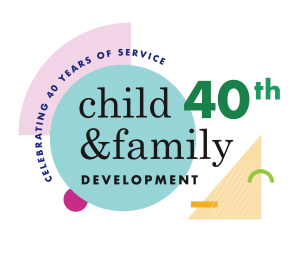By Cynthia Brouillard, PsyD ~ Child and Family Development
Concerns about your child’s development brings with it many questions and often significant worry. Determining where to go to gain answers can also feel overwhelming. The importance of obtaining a comprehensive diagnostic evaluation when this occurs cannot be understated. Getting a diagnosis is a first step, but this only tells you what to call it. Unfortunately, many parents are given a diagnostic label and are then left to figure out on their own what that means for their child. While gaining diagnostic clarification is important, determining what to do is imperative. This is where a well done evaluation comes in.
A thorough evaluation provides invaluable information in a variety of areas. This includes determining what kind of a learner your child is. For example, do they learn better when information is presented verbally or visually? How much of what you say does your child truly understand? Verbal children can be “foolers” in that even though they are speaking, they may have difficulty using their language to communicate their wants and needs and may not understand language as well as you might think. This has significant implications for learning, parenting and structuring your child’s day. If your child is having tantrums, why might that be happening? Knowing the cause is essential to developing an intervention plan. For example, a child who tantrums because they are overwhelmed by sensory input in their environment will need a different intervention than a child who is simply expressing their unhappiness at not getting something they desire.
A well done evaluation will provide you with essential information regarding your child’s strengths and needs in the areas of language, learning, problem solving and reasoning, adaptive skills such as self care, sensory processing differences, motor skills and social skills. This information, in turn, can enable you to:
– Determine what kinds of interventions your child will benefit from.
– Help you be a better teacher for your child at home.
– Advocate effectively for your child. Knowing your child’s strengths and needs enables you to determine not only what they need, but why they need it.
– Provide more effective discipline for your child. Discipline is very tricky when you have a special needs child. For example, what is reasonable to expect from your child and what is a skill deficit and will require more patience, support and intervention. What strategies will be effective in improving your child’s behavior? Knowing how your child learns is a big help here.
– Collaborate with your child’s school effectively. Understanding your child’s learning needs can help you work with your child’s school to ensure that the programing provided is a good fit to his or her areas of strength and challenge.
– Explain your child’s needs to family members. This can be challenging as family members will often provide well intended advice, but this may not be a good fit to your child. Gaining detailed information about your child will not only help you more effectively explain your child’s needs to family members, but can also help others understand how to better support you as a parent and to more effectively engage and interact with your child.
Read and listen to more information here about ASD:
– Early Signs of Autism Spectrum Disorder
– Smarty Podcast: The Early Signs of Autism Spectrum Disorder
– Anxiety & Autism Spectrum Disorder
Cynthia Brouillard is a Licensed Psychologist at Child & Family Development. Cognitive behavior therapy, as well behavior management strategies can be very powerful and effective tools to help your child learn to better manage their anxiety so that they are in charge of their emotions rather than their emotions being in charge of them. For an appointment to determine what type of intervention would be most effective for your child, request an appointment at Child and Family Development.
Child & Family Development

Locations:
Mitdtown:
4012 Park Road, Suite 200
Charlotte, NC 28209
704.332.4834
Pineville:
11940 Carolina Place Parkway, Suite 200
Charlotte, NC 28134
704.541.9080
Website | Facebook | Instagram | Twitter




